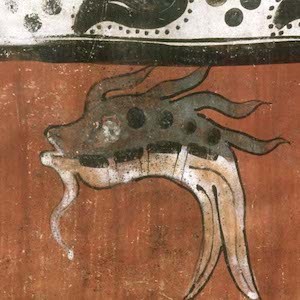Children
Holocaust Girls/Closet
This short story by fiction writer, S.L. Wisenberg, sheds light on the influence of Anne Frank on the imagination and identity of Jewish girls growing up in postwar America.
How to Teach Children: Childrearing and Confucian Doctrine
This excerpt comes from a chapter of Okina mondô, or Dialog with an Old Man, by Nakae Tôju (1606–1648), a Neo-Confucian philosopher. The Dialog teaches practical ethics through a series of questions and answers between a young disciple, Taijû, and a wise old master, Tenkun.
Autobiography, Katsu Kokichi
Katsu Kokichi (1802–1850), a middle- to lower-ranking samurai without distinction, nevertheless wrote his life story, supposedly to warn his children against his own disgraceful behavior.

Maya Vase Database: An Archive of Rollout Photographs
The vases include scenes of palace life, mythology, warfare, and animals.
Great Unsolved Mysteries in Canadian History
Students may begin by focusing on 'solving' the crime itself, but along the way will be drawn into the consideration of wider issuesOn Education
This essay was printed in the periodical Meiroku Zasshi in May 1874. The magazine was produced by a small group of intellectuals committed to the study of Europe and America.
The Book of Rites, The Birth of a Child
The "Patterns of the Family," is drawn from The Book of Rites, a text that defined Confucian rituals of all kinds.
Mourning Rituals for Deceased Children
This moving tribute, carved in the stone of an elaborate shrine, honored a five-year-old boy who died in 170 CE.
The Child in Early Chinese Social Hierarchy: The Biography of Li Shan
The society of early China was organized into a hierarchy where elders were generally deemed superior to and expected deference from their juniors, principles that also guided the relationship between men and women, parents and children, and nobles and commoners.
Taranaki Education Office Report, 1898
A state-funded, secular elementary education system was established in the colony of New Zealand in 1870, but the compulsory attendance provisions for 7 to 13-year-olds were not rigorously enforced, for Maori and Pakeha children alike, until the first decade of the 20th century.